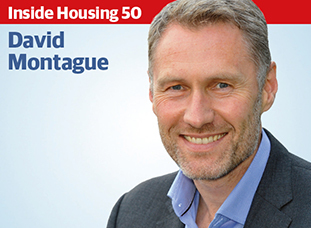You are viewing 1 of your 1 free articles
The way we talk about commercialisation is unhelpful
The sector should talk less about the tension between social and commercial perspectives, and apply two different tests instead, suggests Matthew Bailes
Most sectors quite like to talk about themselves, and the social housing sector is no exception.
Such debates are usually cathartic and often really healthy.
But sometimes they are quite introspective and potentially unhelpful. I fear that the way we talk about the tension between social and commercial perspectives increasingly fits the latter category.
Part of the problem is that the word “commercial” is applied loosely to a whole range of activities.
For example, at Paradigm we have been doing a lot of work to drive efficiency, which has entailed things like improving processes and getting a better deal from contractors.
“Some people seem to think that development of new homes is a ‘commercial’ activity, almost regardless of choices of tenure.”
This work could be described as ‘commercial’ in the sense that if you were investing your own money you’d be mad not to do it. But there is no tension with ‘social’ objectives; far from it – as we improve the business we have more money to spend on meeting housing need.
Similarly, some people seem to think that development of new homes is a ‘commercial’ activity, almost regardless of choices of tenure.
But again, while it makes sense to draw on the for-profit sector in terms of good practice, it is silly to suggest that the delivery of sub-market homes is somehow in conflict with our ‘social’ mission.
The offer of affordable and secure housing transforms the lives of people struggling in our dysfunctional housing market.
These changes are not really about commercialisation at all. They might be better described as ‘professionalisation’, or even just plain common sense.
That leaves us with what I would describe as genuine ‘commercialisation’ – not-for-profit organisations taking on activities that do not pertain to their (usually charitable) objects, in order to make profits.
This activity is not in direct conflict with social objectives either. It seems to me that it is fine if it is done well, the rewards are commensurate with the risks, social housing assets are safe and profits are reinvested in social objectives.
Indeed, sometimes this commercial activity has a symbiotic relationship with the social mission of providers.
For example, if a not-for-profit provider delivers a new scheme with an element of outright sale this can help deliver more and better affordable homes than a for-profit developer would have done had they acquired the same land and delivered affordable homes via Section 106.
This leaves us with tensions between commercial activities and social objectives that are really quite narrow.
“This is really a challenge about competence.”
There is a clear risk of organisations losing money, and thereby losing capacity to deliver their social mission. This is really a challenge about competence.
There is also a subtle risk that as organisations appoint board members and executives able to manage commercial activities they lose sight of their social objectives, and by osmosis commercial activity becomes not a means to an end but an end in its own right.
We do need to be watchful on this issue, but in my judgement as things stand it affects no more than a tiny fraction of providers.
Why does this matter? Well, the reality is that our internal debates sometimes spill over into debates with politicians, where they become dangerous.
For example, seen through the eyes of some on the right of politics, a seeming aversion to adopting ‘commercial’ good practice plays into a world view that sees housing associations as “socialist businesses” (a direct quote) more focused on producer interests than building new homes.
This sentiment was clearly evident in the Cameron government and contributed to some of its policy decisions, including the rent cut and some exotic ideas around privatisation.
“Our internal debates sometimes spill over into debates with politicians, where they become dangerous.”
Similarly, there are some on the left of politics that view the seeming trend towards ‘commercial’ activity as a reason to distrust providers that are already viewed as unaccountable.
We can see some of this narrative playing out in the debate on estate regeneration, where we are at risk of some really good schemes – that benefit both existing and new residents – being lost because of a lack of political and tenant support.
So in my view it would better if we said less about commercialisation and applied two simple tests instead.
If an organisation can demonstrate that (a) its strategy flows directly from its objects, and reflects local needs and its own strengths and (b) it is making the very best use of its resources, then it is probably in a good place.
So let’s avoid shooting ourselves in the foot in future. We should instead be making virtue of the fact we are using professional disciplines to help address housing need.
Matthew Bailes, chief executive, Paradigm Housing Group













